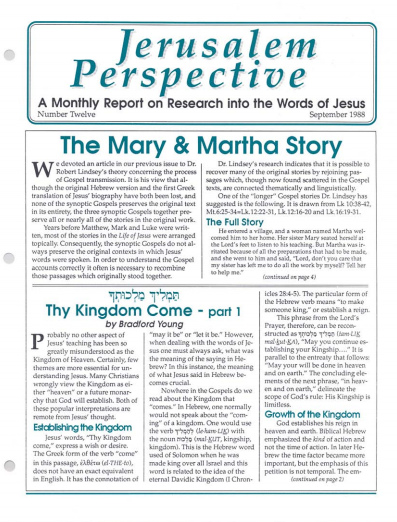Due largely to the influence of the Septuagint, the second-century-B.C. Greek translation of the Hebrew Bible, many Hebrew words came to have a fixed translation in Greek. The Greek verbs δῆσαι (dēsai) and λῦσαι (lūsai), for instance, the Greek verbs used in Matthew 16:19, are the standard translations in the Septuagint for the Hebrew words אָסַר (asar, bind) and הִתִּיר (hitir, loose).
Hebrew words usually have many shades of meaning, and the Greek translator of the conjectured Hebrew Life of Jesus could convey only one sense of each Hebrew word’s meaning. When the standard Greek translation of a Hebrew word became fixed, Greek translators often employed this standard translation even when the Hebrew word it translated appeared with an obviously different meaning.
Such a method of translating is a blessing in disguise for modern scholars trying to recover the Hebrew text of a work that has survived only in Greek translation. It somewhat simplifies the process of putting the Greek back into Hebrew. But this literal translating is anything but a blessing for the unfortunate English reader who must struggle with Hebraisms such as “bind” and “loose” in the Greek texts of the Gospels, not realizing that in addition to their literal meanings, these words can mean “forbid” and “permit.” (See “’Binding’ and ‘Loosing’ in the Kingdom of Heaven.”)
When the Greek translator of the conjectured original Hebrew Life of Jesus translated literally the Hebrew words asar and hitir into Greek, he was employing a traditional method of translation. Almost 1,600 years later, the translators commissioned by King James, generally still using the word-for-word method of translation, rendered the same words literally from Greek into English. Thus, beautiful Hebrew idioms were perpetuated in our English Gospels.
English translators of the synoptic Gospels often transfer into their English translations Hebraisms imbedded in the Greek text, making no effort to recover the Hebrew behind the Greek. Such translations can become clogged with literalisms such as “he set his face to go” (Luke 9:51), “son of peace” (Luke 10:6), “lay these sayings in your ears” (Luke 9:44), and “destroy” and “fulfill,” as in, “Think not that I am come to destroy the Torah, or the Prophets; I am not come to destroy, but to fulfill” (Matt. 5:17).
Making the assumption that most of the material in the synoptic Gospels originated in Hebrew allows one to recognize the Hebrew idioms that are embedded in the Greek synoptic Gospels.


























































